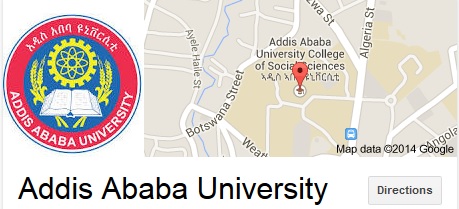Research projects
As part of AAU, it is obvious that the goals of IDPR will emanate from the strategy and goals of the University. Accordingly, to help the university achieve its teaching & learning, research, and community service, IDPR will focus on conducting research that generates knowledge on multifaceted and pertinent socioeconomic problems of the society as well as disseminating research outputs which can serve as inputs for policy making and underpinning development practices. Besides, it will also plan and execute activities that touch community and research activities. Through its, active research units, the institute will work towards achieving the following key objectives:
- To identify researchable issues from community, industry, and initiate research ideas;
- To encourage faculties from the active colleges and their departments to actively participate in the research process (ranging from proposal development to publications) on pertinent development and policy problems of our nation, in particular, and global issues, in general;
- To undertake research and generate evidence-based knowledge and disseminate the same to the scientific community as well as to public policy makers and practitioners;
- To provide advisory/consultancy services to private, public institutions and non-government actors on pertinent development themes;
- To build policy and development research capacity of stakeholders in need of;
- To develop partnership with similar local and international research institutions;
- To organize forum of dialogue/debate on strategic development and policy issues and to advocate and promote the formulation of new and revision of existing policies to meet the development needs of the country.
- To establish new programs and initiatives (which can be MSc and or PhD) that appears to be timely based on what the country’s industry demand
- Scan the environment for emerging issues, scenarios, and innovations and make appropriate research on how it affects stakeholders in the respective industry/ institutions and thereby dictate on necessary policy issues and directions.
These objectives will be achieved by executing different plans and activities across the five research units. The reset of the document explains, how each of the five research units will contribute towards the achievement of the overall objectives
- Journal of Development and Policy Research (JDPR)
- Hyperlink
- Working paper
- News Bulletin
Research projects
International
- WHO, London School of Economics and Political Science, European Observatory on Health Systems and Policies, EU: Health System and Policies: WHO has identified five countries to be centers for a health policy platform: AHOP Ethiopia Center, others are: Kenya, Nigeria, Rwanda and Senegal).
- University of Oxford: Overcoming contraceptive discontinuation by overcoming side-effects: paving the way for personalized contraception in Ethiopia
- University of Bristol: Measuring hidden support for female genital cutting: building an equitable partnership in data analyses with Addis Ababa University
- University of Bristol: Measuring Harmful Cultural Practices Using Randomized Response Techniques: Female Genital cutting in Ethiopia
- Brunel University of London: Attitude to Sharing and Cooperation in a Resource-Stressed Population in Rural Ethiopia
Local
- Commercial Bank of Ethiopia:The 75 yearsof service: Book on Print by AAU Press
- FDRE House of Federation: Five projects (signed this fiscal year and now to be completed next week.
- Economic Research Unit
Ongoing Research Projects:
- Structural transformation analyses at macro level
- Rural transformation, Food Security, and Land Use Policy in Ethiopia
- The Responsiveness of Rural Poverty to Rural Transformation
- Land certification, soil conservation, and agricultural productivity
- Research Projects by Business and Entrepreneurship Research Unit
Quality and relevance of Management Education and Research in Ethiopia
- 2017-2018: ICT platform to hint business ideas and opportunities to others. (Grant of 100,000.00 birr from Addis Ababa University)
- 2017-2018: Platform for Indigenous & Scientific Knowledge Sharing in Pastoralist and Semi Nomadic Community at Borena Zone. (Grant of 195,000.00 Birr financed by Ministry of Communication and Information Technology: co-granted with friend).
- 2017-2018: Mobile money services to smallholder farmers in Ethiopia. This is a joint research project with Professor Ndunge Kati of Cornell University USA. The project is financed by African Development Studies at Cornell University, USA.
- 2016-2017: Mobile Phone Based Crowdfunding: An Alternative to Financing Innovative Business Ideas (grant of 100,000.00 Ethiopian Birr, from Addis Ababa University)
- Research Projects by Industrial and Trade Research Unit
- Examining Structural Transformation and Its Effect on Poverty and Inequality in Ethiopia
- Structural Transformation Analyses at Macro and Manufacturing Industry Level
- Efficiency and Competitiveness of Agro-Processing Industries towards Export Market and Import Substitution Performance
Projects of Population and Gender Research Unit
- Overcoming contraceptive discontinuation by overcoming side-effects: paving the way for personalized contraception in Ethiopia
- Measuring hidden support for female genital cutting: building an equitable partnership in data analyses with Addis Ababa University
- Measuring Harmful Cultural Practices Using Randomized Response Techniques: Female Genital cutting in Ethiopia
- Attitude to Sharing and Cooperation in a Resource-Stressed Population in Rural Ethiopia
- Poverty Level Assessment in Addis Ababa
Projects by Rural Development Research Unit
- Vulnerability of farm households to drought: Econometric and spatial analysis
- Impact of land certification on soil conservation under climate change.
- Impact of Information, Education, communication (IEC) and gender differences on adoption of productivity enhancing technologies under climate change.
- Land Certification and Internal Migration: Evidence from Rural Ethiopia







